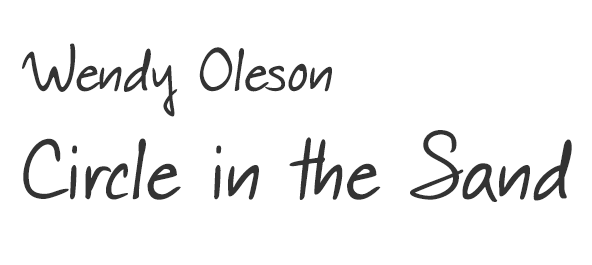Back home bananas were 49 cents a pound, not 69 cents, and that was enough to make him hate this place. Still, Bob put two sturdy bunches in the cart and made for the potatoes, which he hadn’t bought in years due to Gracie’s diet. He piled a fifth onto the scale; the needle quivered past three pounds. That’d do. Feeding russets into the flimsy bag, his hands were lumpy and ugly as a potato.
He grunted—or had he? He couldn’t control what came out of his mouth. Though there wasn’t anybody around. Nearly midnight, not a soul in produce, and nobody to help him find the peanut butter aisle. A shuttered pharmacy, a stretch of fresh meats he couldn’t buy without a butcher, and a decades-old song—not old enough to be good—playing above his head. A woman singing about some circle in the sand, whatever the hell it meant. He didn’t understand what women meant, and now that he’d retired, Gracie talked nonsense like it was her full-time job. She’d talked him into this trip that was a failure so far. They were stuck at a motel in the middle of nowhere, Washington—Yakima? Umatilla? Walla Walla? Goddamned wildfires.
There. He found it. Chunky, yes, and yes to two jars because of the sale, 2/$5.00, that near made it reasonable. He needed bread. Their motel room had a microwave but no fridge. A bathroom sink, a microwave, and an empty space where the little fridge should be. At least the maid had vacuumed the empty space. He’d seen the comforting lines.
A road trip of smoke and stink and roads like quarries of broken concrete. Next, they’d stay with Gracie’s motormouth sister—like having Gracie in stereo when he wanted silence. He plucked a jug of juice, pulpy stuff, and ambled toward the checkout, hip hurting. Damn song repeated itself. Like it had nothing better to do than drive him insane. The potatoes looked like moon rocks—and if Gracie said a thing about them . . .
The light changed as he rounded the corner. A bright turquoise floated, framing his vision: There before him loomed an enormous peacock. Just a boy when he’d seen the wild peacocks on his grandparents’ land, but this one was massive, with a train bright as church votives and colorful as finger paints. A giant bird at the market. Swirling creature against the store’s black windows.
No—he was mistaken. Not a single, supernatural creature but six, actual, pet-store birds—a cockatoo and conure, lorikeets and parakeets—their claws curling around dowels tied to a grocery cart. He’d confused this bird-transporting contraption for a peacock’s plume. Six sets of bird eyes staring at him, moving together. Nobody had looked that hard at him in years. Circle in the sand.
Who the hell brought pet birds to the grocery store? A woman pushed this miraculous bird cart, a hard-living country woman or some fairy-tale witch with long hair and a throbbing red halo. With birds like green and gold auras at her shoulders. Her hair was the silver of his grandmother’s. His grandmother who had kept birds. But when his grandfather died the town had turned on her. People thought she’d killed him. Because she gardened by the phases of the moon.
“Had to get my babies inside, away from the smoke,” the bird woman told him.
He’d forgotten to get bread. Gracie wouldn’t let him keep bread at home, but now he’d buy it.
Except the bird woman had him pinned against the cereals, his face inches from the three littles with sweet orange cheeks almost stomping their bitty feet to the music.
“It was the worst day of the year for the fires,” she said.
“I’m not from around here,” he said.
“Where’re you from?” She lifted her wrist, and the huge green one stepped up.
His belly yowled, and they all heard it—a cry for help, hunger, or a cry for Gracie, who’d screwed up his life soon as she’d entered it, who’d taught him how much he didn’t know, and who would’ve loved his grandmother. Gracie would have been charmed and grateful to learn from Grandma Nell, learn about the Earth, growing its food, and understanding its creatures, and maybe then Gracie wouldn’t have spent so much of her life counting calories and carbs, trying to lose weight only to gain it. He leaned against the shelves, and the cereal boxes slowly toppled.
“Smile, honey,” the green bird cawed, fluorescent light igniting its feathers.
Then, from another one, “Circle in the sand.”
Wendy Oleson is the author of two award-winning prose chapbooks. Her fiction appears in Denver Quarterly, Copper Nickel, Cimarron Review, and elsewhere. She serves as managing editor for Split Lip Magazine, associate prose editor for Fairy Tale Review, and lives in Walla Walla, Washington. Find Wendy online at @weoleson and wendyoleson.com.
